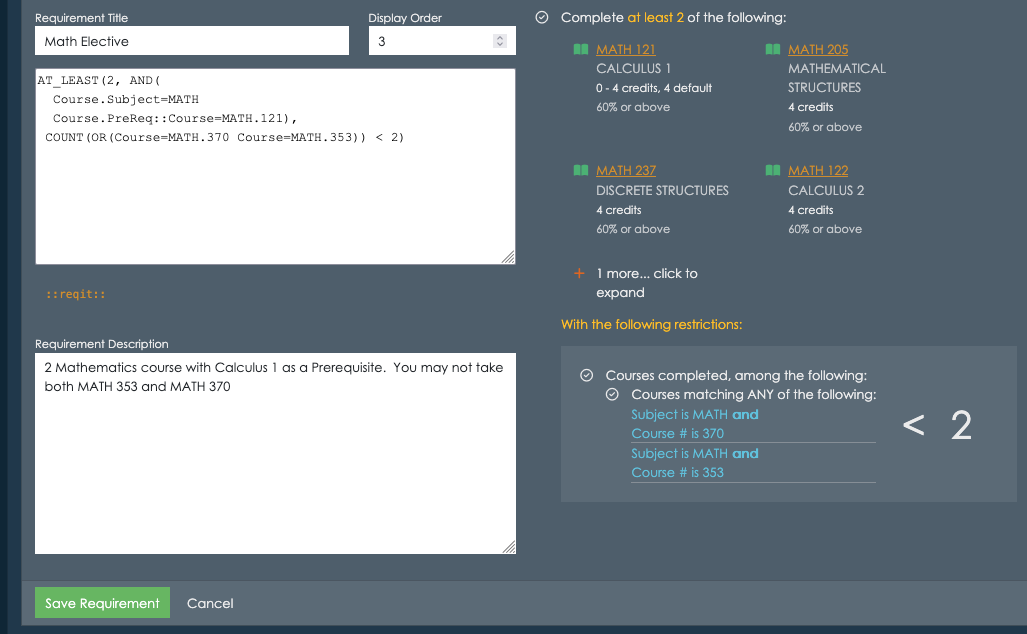Catalog
The courses you offer are the the heart of your institution, and they should inform everything you do.
If your course catalog is a collection of Word docs, WordPress pages, and difficult to maintain data, then it's really hard for you to integrate with scheduling software, student records, and advising tools.
An unstructured catalog means creating reports on enrollment, student demand, and faculty workload is a nightmare.
When one things changes, it's hard for you to know what else needs to change!
appiversity fixes this!
Fully searchable, interactive, and structured course catalog transforms your institution. Students can find courses and curriculum maps can be automatically generated and effortlessly kept up to date.
Track changes year to year, and model how changes can affect student enrollment, faculty workflow, and scheduling. Your catalog data can flow across applications and systems - always up to date, always accurate, across the entire campus.

Moving to a modern catalog system doesn't need to be painful. It also doesn't need to be expensive.
You may have tried to modernize your catalog before, and invested in tons of training, only to find output the software was too inflexible and too difficult to use without expensive support and consulting contracts.
Catalog models requirements for change. If the pre-req for your Chemistry Capstone is "take any three 300 level Chemistry courses", you don't want to model that as needing to take three among a list of 20 Chemistry courses painstakingly written out individually. As soon as the Chemistry department adds, renames, or removes a course, you need to change the requirement! It's hard to see all the dependencies, and your catalog can quickly become out of date.

Catalog's ::Reqit:: requirements language solves this - you specify requirements with simple expressions that align with how people think about them. ::Reqit:: let's you model patterns, and then automatically finds the matches in your catalog whenever anyone views the requirement - it's alway up to date, and it's always accurate.
::Reqit:: is easy to learn, and because it let's you specify requirements so compactly, it's easy to export and integrate with other tools.
It's a game changer for modeling complex program and course requirements. You won't have to tell anyone "the catalog software doesn't let me do that" anymore!